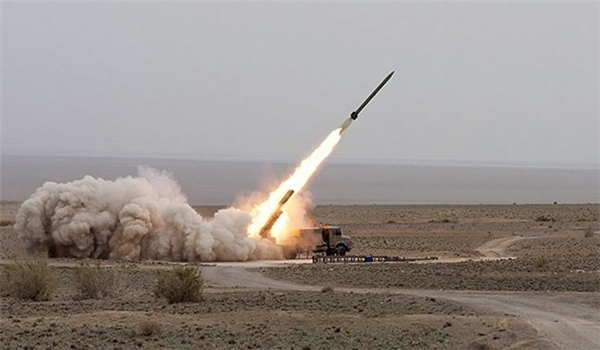IRGC Official Stresses Defensive, Missile Capabilities as Iran’s Redline

A senior political official at the Islamic Revolution Guards Corps (IRGC) underlined that Iran will not withdraw even an iota from its redlines, including the country’s defense capabilities and missile issues, in its deal with the world powers.
“The defense capabilities and the missile issues are among the redlines in the negotiations and we will not withdraw from it under any condition,” Advisor to the Supreme Leader’s Representative at the IRGC Yadollah Javani told FNA on Saturday.
He pointed to the high preparedness of the Iranian Armed Forces to confront enemies’ military threats, and said, “We have military deterrence power, but the enemies, with the US at the top of them, want to weaken our military power within the framework of the nuclear talks.”
Javani referred to the final agreement in Vienna on July 14, and said, “The concerned bodies will definitely review the sum-up of the Vienna talks, and (Iran’s) Supreme National Security Council is responsible for taking care of this.”
Iranian officials have on different occasions underscored that the country’s missile program is non-negotiable, stressing that the talks with the six world powers are limited to the nuclear issue.
Earlier today, Deputy Commander of the IRGC for Political Affairs Brigadier General Rasoul Sanayee Raad reiterated that Tehran would never accept its defensive capabilities, specially its ballistic missile program, to come under negotiation in any talks.
“Iran’s military capabilities, including access to ballistic missiles, are no bargaining chip or agenda,” Brigadier General Sanayee Raad told FNA.
He reiterated that supporting the nuclear negotiating team does not mean accepting all conditions of the other side, and said, ” Negotiations between Iran and the Group 5+1 (the US, Russia, China, France and Britain plus Germany) will be merely confined to nuclear issues.”
In relevant remarks in March, Commander of the IRGC Aerospace Force Brigadier General Amir Ali Hajizadeh underlined that the Islamic Republic of Iran would never accept negotiating its ballistic missiles and other defense capabilities with the world powers.
“The Islamic Republic of Iran’s nation, government and Armed Forces all believe that the country’s defensive capabilities, specially the ballistic missiles, will never be negotiable at all. This is a message which should be understood by the bullying powers which raise excessive demands,” Hajizadeh said, addressing a ceremony to unveil a new long-range ground-to-ground cruise missile system, named ‘Soumar’, in Tehran on March 8.
He downplayed the effects of sanctions on Iran’s defensive programs, and said the Soumar missile system unveiling ceremony had this message for the country’s opponents that such hi-tech products and capabilities are developed and produced in large numbers, while Iran is under the toughest “sanctions that are described by the enemies as harsh and bitter”.
Iran and the six world powers struck a deal in Vienna on Tuesday.
The hitherto elusive agreement was finally nailed down on Tuesday in the ritzy Palais Coburg Hotel in the Austrian capital of Vienna, where negotiators from Iran and the six other countries had recently been spending over two weeks to work out the remaining technical and political issues.
The agreement, the Joint Comprehensive Plan of Action (JCPOA), will be presented to the United Nations Security Council (UNSC), which will adopt a resolution in seven to 10 days making the JCPOA an official document.







